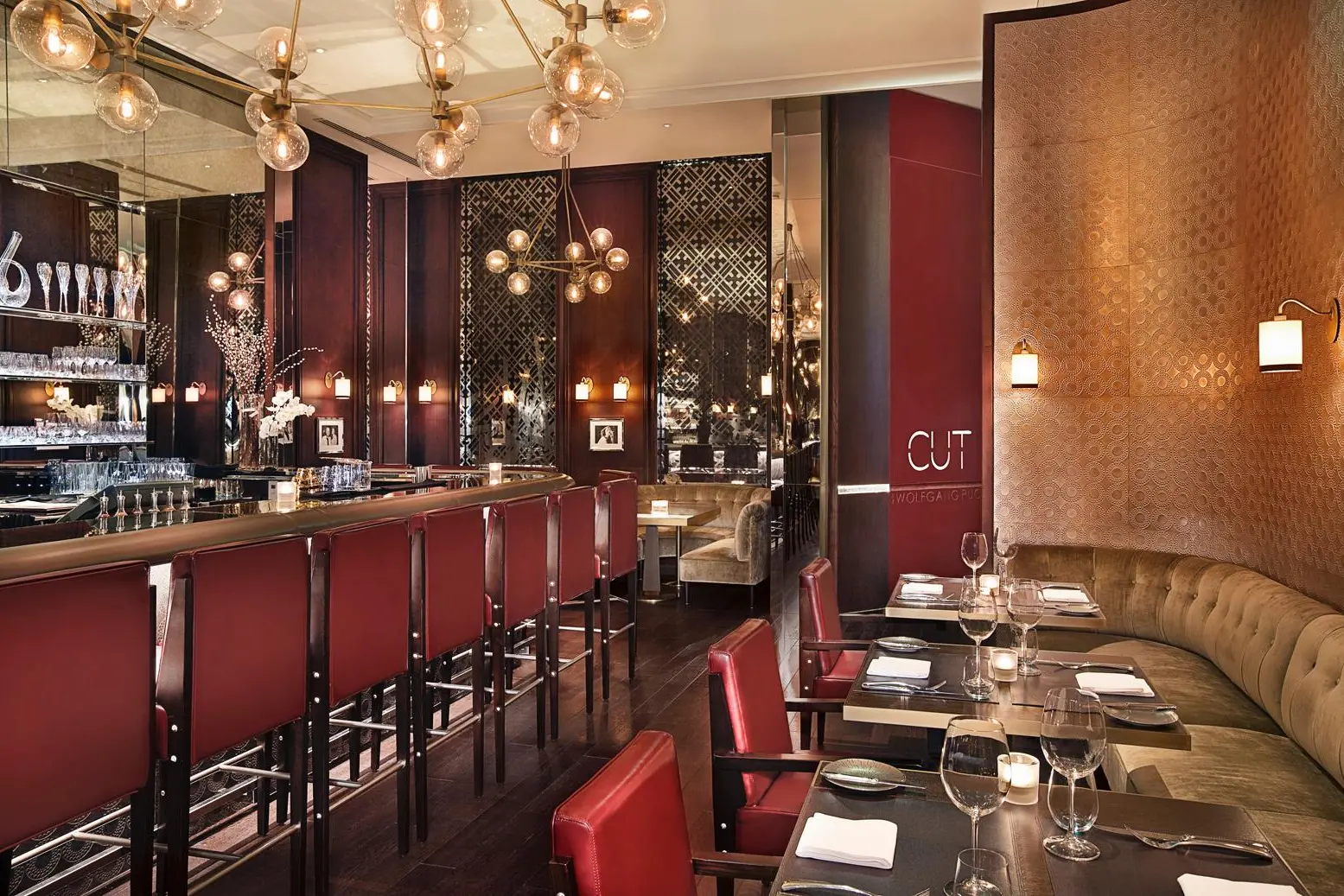PHOTO
Monday, May 29, 2017
Dubai
In the UAE’s F&B business, all options are on the table... when it comes to the financing and management.
Corporate takeovers, buying up of minority stakes by specialist investors, and even turnaround specialists coming on board to nurse ailing F&B operators back into health — it’s all happening. Some of the deals are being structured in ways that would not be out of place in high-value banking or financial services transactions. And for the smart investor in F&B, future returns come with the right flavour.
“There’s a lot of overseas money wanting to come in for any sort of exposure in UAE based F&B concepts, whether they are existing ones or brand new launches,” said Biju Koshy, Managing Director of Celebrations, which runs the ethnic Indian restaurant chain “Tharavad”. “When India went through its demonetisation move in November last, that had a lot of India-based investors wanting to come in and park their funds here — it was either buying real estate or put up funds for an F&B asset. F&B in Dubai is hot right now from an investor perspective — and not just in terms of new openings.”
His company recently took over the management of another Indian restaurant brand (“Masala Pot”) in Dubai, after being called in by the original promoters. Masala Pot was losing money despite having prime locations in the city. “We have entered a joint venture with the promoters, and will now have a five-year management contract on both existing locations and potential new ones,” said Koshy.
“I think we can turn around the Masala Pot operations in another two years.”
The Celebrations Group operates an industrial kitchen in Ajman, and this is what Koshy hopes to leverage in cutting cost of operations at Masala Pot and making the business feasible. “It gives us the scale and steadiness of income that managing restaurants alone cannot provide,” said Koshy. “So, we have the industrial kitchen providing for third-party clients and our own hot-food counters at supermarkets. The number of supermarkets opening up in the UAE creates ample opportunities for this line.” (Currently, the industrial kitchen represents anywhere up to 60-70 per cent of the Group’s F&B turnover and nearly half of the profits.)
Recent months have seen a steady trickle of corporate deals in the local and Gulf’s F&B space. In December, the alternative asset management arm of Kuwait’s Global Investment House picked up 100 per cent in Yum Yum Tree Food Court Co, one of the larger quick service restaurant managers in the Gulf. At the time of the deal, the latter had nearly 180 outlets within its fold, including for international brands for which it was the master franchisee or operator. These include Vanellis, Teryaki, Pad Thai and Al Mangal.
According to Global Investment House estimates, the Gulf’s fast-food marketplace could generate $2 billion (Dh7.34 billion) by the end of this decade. “Unlike the fine and casual dining segments, the quick-service-restaurant segment is least prone to economic volatilities and has already shown resilience in the past two challenging years for retail — and especially food retail — in the region,” said Sulaiman Al Rubaie, head of Global’s Alternative Asset Management Division, in a statement at the time.
Also, in November last, the management consultancy firm UAE Business Solutions said it had acquired equity in Royal Kebab Restaurant, which came into being in 2014. This was in “support of its expansion plans within the F&B sector”, the firm said in a statement.
“We have a restaurant consultancy division and we have a personal and business relationship with the owner [of Royal Kebab, which is part of Dubai Legacy Restaurant Group],” said Steve Armitage, Managing Partner at UAE Business Solutions. “As a result of preparing their accounts each month and understanding the owner’s vision for the business and future brand development, we felt it was a calculated investment to make.
“We provided liquidity to finance restructuring of the existing business, pay for a new corporate structure, and the registration of trademarks for the brands under their control. At some point we would hope the business value would be sufficient to facilitate the owner selling part or all of the business and our capital — plus profit — will be returned.
“We are working very closely with the owner on the financial side to turn this into a reality. We do not, however, get involved with the operational side.”
BOX
The vital ingredients sparking an F&B boom in Dubai
Over the last year, UAE residents have shown less of an inclination to splurge on shopping for apparel and accessories. Or even go in for new cars. But they still have the stomach to indulge in a fine meal.
That’s just fine as far as F&B concept promoters and investors are concerned. Steve Armitage of UAE Business Solutions cuts and dices some numbers to show why F&B-related investments are more than the flavour of the month.
“There are 2.8 million people living in Dubai and on average these people eat 2.5 times per day — that is 7 million meals to be prepared daily,” he said. “If we say that half of these meals are prepared at home then that is still 3.5 million meals per day to be served.
“With 8,000 F&B outlets across the city, that is an average of 437 meals per outlet. So, there is enough business to go around... provided individual operators have a clearly defined business plan and execute it properly. Dubai inhabitants have a healthy interest in all things food and new offerings only add to this.
“The industry overall is definitely bullish — but there will still be failures on an individual level.” (According to him, the return on investment timeline for independent restaurant outlets is five to seven years depending on the product offering and marketing efforts of the individual owners.)
By Manoj Nair Associate Editor
Gulf News 2017. All rights reserved.





















